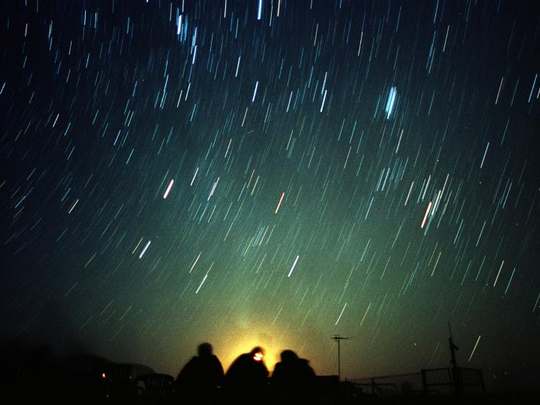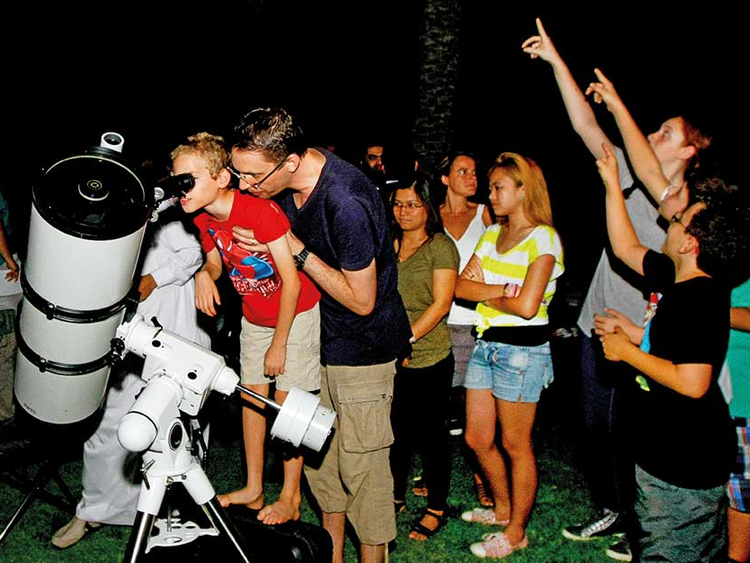
Dubai: If the celestial fireball first thought as a meteorite last month was a downer, here’s your chance to see a real meteor shower right in the UAE this weekend.
A flaming fireball seen descending over the UAE night sky last month was thought to be a meteorite but was actually space junk, according to experts.
This time, UAE residents will get to see the real deal as spectacular “shooting stars” will streak through the night sky as the Leonid meteor shower hits earth this weekend.
This annual meteor shower gets its name from the constellation Leo, where its meteors appear to originate. It is responsible for some of the most intense meteor storms in history — with meteors falling at rates as high as 50,000 per hour sometimes.
Although these “storms” only happen rarely, UAE viewers will still get a celestial treat to an hourly rate of 10 to 20 meteors, according to Sky and Telescope, on the peak date on Friday.
The Dubai Astronomy Group is organising a public event to observe the amazing celestial phenomenon from Friday evening until early morning on Saturday.
Hassan Al Hariri, CEO of Dubai Astronomy Group, said visibility this year will be excellent because the new moon will take place on November 18 that will provide a perfect view of the meteors. This means the shower will not be washed out by any lunar light.
The Leonid meteor shower peaks on the night of Friday, November 17, and early the following morning, Al Hariri said.
“Sky watchers may be able to see some meteors days before and after the peak. The moon will only start to show its face briefly around sunset, meaning there will be excellent viewing conditions for watching the Leonids,” Al Hariri said.
Aside from the meteor shower, other celestial objects may also be viewed using the group’s telescopes such as Saturn, stars, globular clusters, nebula and other deep sky objects.
Registration is required for the public viewing. The venue for the public viewing will be disclosed only to registered viewers.
To register, visit www.dubaiastronomy.com or www.Q-Tickets.com.
Public viewing in Dubai
What: Leonid meteor shower public viewing
When: November 17, 9pm until 4am (November 18)
Where: Venue for public viewing will be disclosed only to the registered viewers
Admission: Participants are required to register beforehand
How and where to watch
You don’t need special equipment to see the meteors as they will be visible to the naked eye. You will need to be away from the city lights, however, to be able to see the meteors properly.
What causes the Leonids?
The Leonid meteor shower happens every year in November, when earth’s orbit crosses the orbit of Comet Tempel-Tuttle. The comet revolves around the sun every 33.3 years, leaving behind a trail of dust rubble.
When the earth’s orbit crosses this trail of debris, some of them enter the atmosphere, heat up and ignite into burning balls of fire called meteors. An interesting fact is these comet crumbs are usually the size of a grain of sand or a pea. They tend to burn up entirely before striking the earth’s surface. Those that survive the whole journey to the ground are called meteorites. The Leonid meteor shower, however, is not likely to deliver any meteorites.
Source: Dubai Astronomy Group









